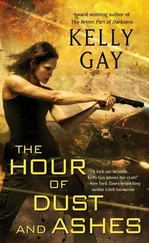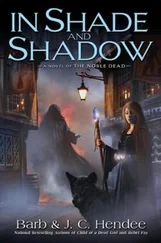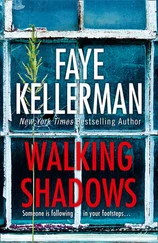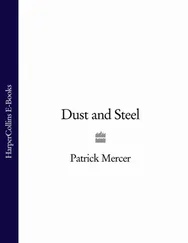Lyndsay Faye - Dust and Shadow
Здесь есть возможность читать онлайн «Lyndsay Faye - Dust and Shadow» весь текст электронной книги совершенно бесплатно (целиком полную версию без сокращений). В некоторых случаях можно слушать аудио, скачать через торрент в формате fb2 и присутствует краткое содержание. Жанр: Старинная литература, на английском языке. Описание произведения, (предисловие) а так же отзывы посетителей доступны на портале библиотеки ЛибКат.
- Название:Dust and Shadow
- Автор:
- Жанр:
- Год:неизвестен
- ISBN:нет данных
- Рейтинг книги:5 / 5. Голосов: 1
-
Избранное:Добавить в избранное
- Отзывы:
-
Ваша оценка:
- 100
- 1
- 2
- 3
- 4
- 5
Dust and Shadow: краткое содержание, описание и аннотация
Предлагаем к чтению аннотацию, описание, краткое содержание или предисловие (зависит от того, что написал сам автор книги «Dust and Shadow»). Если вы не нашли необходимую информацию о книге — напишите в комментариях, мы постараемся отыскать её.
Dust and Shadow — читать онлайн бесплатно полную книгу (весь текст) целиком
Ниже представлен текст книги, разбитый по страницам. Система сохранения места последней прочитанной страницы, позволяет с удобством читать онлайн бесплатно книгу «Dust and Shadow», без необходимости каждый раз заново искать на чём Вы остановились. Поставьте закладку, и сможете в любой момент перейти на страницу, на которой закончили чтение.
Интервал:
Закладка:
There was initially some discussion regarding who would attempt the endeavour itself, but Miss Monk would not hear of being left behind, and as Dunlevy’s presence was deemed likewise necessary, I faced breaking into Leslie Tavistock’s place of employment as part of a courageous band of three. We met on Friday to work out a story in case of emergency, the following evening at eleven fixed as the start of our nocturnal enterprise.
At a quarter after ten that Saturday night, I walked as far south as Oxford Street, then hailed a cab, for the air had cleared considerably and the last traces of fog swirled about the windows as playfully as a child’s toy ribbon, tempting faceless passersby further into the night. We approached the Strand by way of Haymarket, and I alighted from the hansom with ten minutes to spare. Turning onto a side street, I descended the steps of a tiny public house and hailed Miss Monk and Mr. Dunlevy, who had engaged a small corner table lit by an oil lamp which I do not think had ever been cleaned.
“Ladies and gentlemen,” declared Stephen Dunlevy, a smile tugging at the corner of his moustache as we raised our glasses, “I give you Mr. Alistair Harding, a man who holds a grudge with vigour and enthusiasm.”
“Miss Monk, have you the bag?” I inquired.
She tapped a small burlap sack with the toe of her boot.
“In that case, let us be on our way. Miss Monk, we will see you in ten minutes.”
Leaving Miss Monk in the pool of light at the table, Dunlevy and I strolled past the last stately buildings of the Strand, through the demarcation of the Temple Bar where the great stone archway had once stood, and thus entered Fleet Street, that strident nucleus of British journalism. The area was calm so late on a Saturday, and the general impetus of the pedestrians seemed that of departure rather than arrival.
Dunlevy approached the front door of 174 Fleet Street, stolid block lettering declaring it to be the home of the London Chronicle, and inserted Mr. Harding’s key in the lock. Seconds later, we were within the vestibule, Dunlevy pulling a dark lantern from within his voluminous coat.
“I see no sign of occupation,” he mouthed cautiously.
“We will know for certain once we have reached the upper floor.”
With painstakingly silent tread, we advanced up the stairs to the first floor, where no more light met our eyes than the beam of our own lantern. I knew my way, and passing through the common room, we proceeded directly to the second office, secured with one simple lock. I withdrew the key from my pocket and opened the door.
Dunlevy fully unshuttered the eye of the dark lantern and the room flooded instantly with light. Papers lay strewn across the desk, and files sat upon bookcases and lay open over reference volumes. We began shuffling through the scattered texts, careful to keep them in order lest the true reason for our nocturnal visit be revealed. We had been reading every scrap of paper we could lay our hands on for several minutes when a low whistle from Dunlevy arrested my attention.
“Hullo! Here is something.”
I abandoned the disjointed jottings of my own chosen page and focused instead upon Dunlevy’s, which read:
There have been no murders since Holmes was wounded, which is very likely not a coincidence.
Has expressed contempt for police in past cases.
Continues to frequent the East-end.
Then, scrawled at the bottom of the page:
Holmes has disappeared. An admission of guilt?
“Good lord, Dr. Watson, I never anticipated there may be more of this garbage in the works.”
“I confess I feared as much, but this is uglier than the others combined.”
“But see—this page could not have been written by Tavistock. The handwriting is different.” From down the stairs, I heard the creak of the outer door.
“What sort of papers are those?” I asked.
“This is the beginnings of an article, and here is a letter, signed by Tavistock, not yet sent. These are in the same hand as most of the documents on the desk. The note about Mr. Holmes must be suggestions from the rascal’s source.”
Miss Monk entered and shut the door behind her. “What’s up, then?”
“This note seems to have been penned by the cause of all this trouble,” said I.
She looked over my shoulder. “A man’s writing. Mr. Holmes would make something of it.”
“I would take it to him, but there cannot appear to be anything missing,” I considered, copying the noisome text into my pocketbook.
“Is there an envelope?” Miss Monk asked. We cast about for one in the basket full of crumpled scribblings. Soon she emerged from under the desk with a flush of triumph.
“Dated Saturday the twentieth. Paper matches the envelope, addressed to Leslie Tavistock, London Chronicle. It’s in the same hand! We can take the envelope, for it won’t be missed.”
Our search brought to light more documents but no new information. The same man had written three other letters to Tavistock, once to arrange an appointment and twice to forward fresh news of Holmes, but as they had already resulted in calamity, they told us nothing. At length, as the hour approached one o’clock in the morning, I suggested we depart.
As Dunlevy and I cast a final glance over the room to ensure we had not left any identifying traces, Miss Monk picked up the burlap sack she had propped against the wall, and, with an air of courtly ceremony, deposited its contents upon the desk, dropping the bag in the dustbin with a final toss of her head.
We made our way downstairs. As I reached my hand toward the door handle and the outside world beyond it, I started at the sound of approaching footsteps. I signaled my companions to step back. Scarcely breathing, I prayed silently to hear the same tread depart, but to my dismay, the handle of the door was tested and then pushed carefully open.
In an instant, Stephen Dunlevy opened the shutter of the dark lantern and sprang before the door, his hand raised as if to open it when a grey-whiskered police constable entered with his truncheon in hand.
“Oh, I say! How you startled me, Officer,” Dunlevy exclaimed.
The stout fellow returned his truncheon to his belt but regarded us with suspicion.
“Do you mind telling me what the three of you are doing here? There’s never a soul in the building at this time on a Saturday.”
“To be sure, my good man. I admit, though, you gave us a fright.”
“No doubt,” he replied tersely. “You have a set of keys, do you?”
“Indeed, yes. I must say, sir, I admire your thoroughness in policing, if you always check locked doors while on your beat.”
“I string the locked doors, as most of us do. The string was broken.”
“Aha! Very workmanlike, Constable…?”
“Brierley.”
“Well, then, Constable Brierley, my colleague and I required absolute secrecy in order to interview this young woman.”
“And why might that be?”
“She claimed to hold very valuable information about the Ripper murders.”
Miss Monk nodded shyly, half hidden behind my shoulder.
“And why was it necessary to meet in the dead of night in a deserted press building?”
“It’s very dangerous information, Officer,” she whispered.
“Well, if you’ve information about the Ripper murders, miss, you must tell me what it is that you know.”
“Please, sir,” she said, shuddering, “they’ll come after me, I know it.”
“Who will come after you?”
“His friends—they’ll murder me in my sleep.”
“Come now, my dear,” the constable said serenely. “If you are in any danger, we will provide you with protection.”
“You don’t know them! It’s as much as my life is worth to gab to the Yard.”
Читать дальшеИнтервал:
Закладка:
Похожие книги на «Dust and Shadow»
Представляем Вашему вниманию похожие книги на «Dust and Shadow» списком для выбора. Мы отобрали схожую по названию и смыслу литературу в надежде предоставить читателям больше вариантов отыскать новые, интересные, ещё непрочитанные произведения.
Обсуждение, отзывы о книге «Dust and Shadow» и просто собственные мнения читателей. Оставьте ваши комментарии, напишите, что Вы думаете о произведении, его смысле или главных героях. Укажите что конкретно понравилось, а что нет, и почему Вы так считаете.












